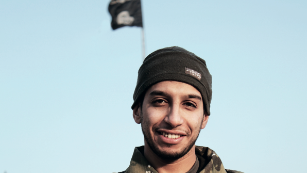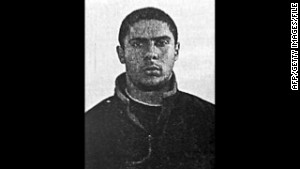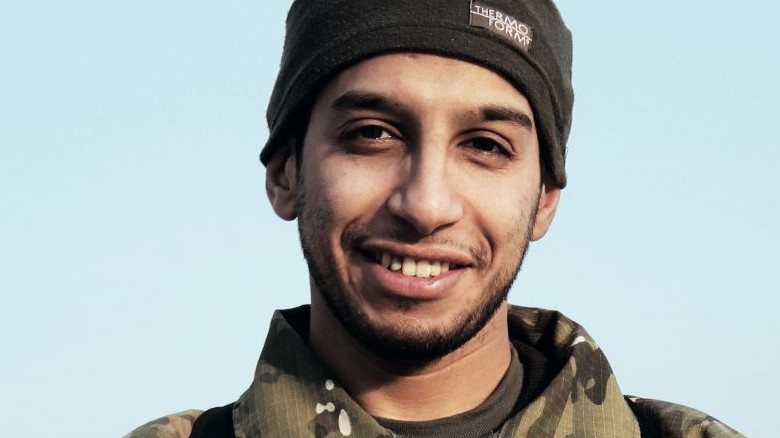Tracking ISIS ambitions in Europe -- a threat years in the making
More than two years ago, the man who would export the terror of ISIS to Europe arrived in the Syrian city of Raqqa. His name was Abdelhamid Abaaoud, and he was from the Brussels neighborhood of Molenbeek.

Abdelhamid Abaaoud killed in coalition-led airstrike
Abaaoud would find notoriety -- and death -- in November 2015 as the organizer of the terror attacks in Paris. But long before then, he had outmaneuvered Europe's intelligence services, dispatching perhaps dozens of fighters to the continent. He seemed obsessed with opening a new front for ISIS in Europe.
And long before the Paris attacks, Abaaoud had a network in Belgium. He had served time in jail with Salah Abdeslam, who would join him in attacking Paris.
On January 20, 2014, Abaaoud flew from Cologne, Germany, to Istanbul, accompanied by his 13-year-old brother and another would-be jihadist, Yoni Patrick Mayne, also from Molenbeek.
Days earlier, according to intelligence documents obtained by CNN, Abaaoud had received a call from a Turkish mobile number.
The call was from Mehdi Nemmouche, a French-Algerian who had left to fight jihad in Syria in 2012. Radicalized in jail in France, Nemmouche had become a guard and torturer of foreign hostages in Syria, according to one of the few to survive, French journalist Nicolas Henin.

A picture released on June 1, 2014 shows Mehdi Nemmouche.
What was said is unknown, but the call confirmed a link between the two. Weeks later, Nemmouche would head back to Europe. He used an elaborate route to disguise his travel from Syria, via Malaysia, Singapore and Hong Kong, before arriving in Frankfurt on March 18, 2014.
German authorities notified the French but, perhaps already sensing Europe's weak security coordination, Nemmouche went to Belgium. And on May 24, he allegedly staged a gun attack on a Jewish museum in Brussels that killed four people. When he was arrested in the French port of Marseille a week later, Nemmouche was in possession of a Kalashnikov rifle and a flag with ISIS rubric. He is still awaiting trial.
Nemmouche was the first among French and Belgian ISIS fighters -- some encouraged and directed by Abaaoud -- to stage an attack in Europe. At the beginning, it was a trickle but gradually it became a stream.
ISIS began developing encryption techniques and producing high-quality fake documents for its Europe-bound fighters. Flights were eschewed for sea and land routes that would exploit the migrant flows already stretching European frontier agencies in the summer of 2014.
The exact equation between "freelancers" or "lone wolves" inspired by ISIS and those trained and directed by the group remains elusive. Unlike the more hierarchical al Qaeda, ISIS gives its operatives much more autonomy.
But by the autumn of 2014, Abaaoud's determination to export terror -- likely endorsed by other French jihadists such as Fabien Clain and Salim Benghalem -- appears to have found an audience among the ISIS leadership. The change in sentiment was probably because of the beginning of coalition airstrikes against ISIS -- first to defend the Yazidi population in Iraq in August and then to support Syrian Kurds fighting ISIS in Kobani the following month.
It was then that ISIS spokesman and leading ideologue Abu Mohammed al-Adnani issued a threat to the "Crusaders."
"O Americans, O Europeans, the Islamic State did not initiate a war against you," Adnani said. "It is you who started the transgression against us, and thus you deserve blame and you will pay a great price."
Adnani made this threat to Europeans. "You will pay the price as you walk on your streets, turning right and left, fearing the Muslims. You will not feel secure even in your bedrooms. We will strike you in your homeland, and you will never be able to harm anyone afterwards."
By then, according to European counterterrorism officials, some 300 European jihadists were already back from Syria. And security services were struggling to keep up with the inflow.
One official acknowledged to CNN, even before airstrikes began, that "the threat of attacks has never been greater -- not at the time of 9/11, not after the war in Iraq -- never."
He and others envisaged a flood of small-scale, solo attacks. But he added: "The worry is that Europeans in the group may out of their own initiative return home to launch attacks. The question becomes to what extent will the ISIS leadership try to control this?"
The answer would be: to a great extent. As airstrikes intensified, taking out key leaders of ISIS and eroding its control of territory, so did the group's desire for revenge. What was different was the ambition: no longer opportunistic and individual but complex and directed.
News Courtesy: www.cnn.com











